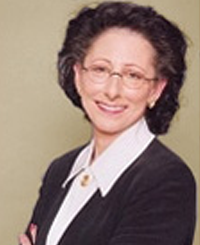Organizing Yourself for the “Eldercare Stage”
It\’s virtually impossible to accurately predict the extent or length of the commitment to eldercare but for many caregivers, it\’s a lot longer than they ever imagined. In fact, in last month\’s column, I mentioned an interview with Roberta Satow for my Expert Interview Series (http://agewiseliving.com/shop-expert_interviews.htm), in which she talks about caregiving as “a stage of life”. She explains that, unlike our parents who provided care for their parents for an average of 1-5 years, our own parents are living a lot longer now. So that means we could be facing 20+ years of caregiving for our own parents!
The good news – and I can tell you this from personal experience – is that, regardless of where you are in your caregiving timeline, you will save time and make your life easier and more manageable if you put systems in place for the long haul.
My Generational Coaching clients often say to me “I have too much stuff going on – I don\’t have time to get organized!” However, when they start tracking the time they spend looking for and/or duplicating information, they are shocked at how much time and energy they\’re wasting – especially long-distance caregivers and/or those sharing caregiving responsibilities with others.
Therefore, the best way to prepare for this stage of life is to get organized. Here are 2 ways to do that.
First, MASTER THE MASTER SCHEDULE
As busy Boomer Women, we wear many hats: wife, mother, employee, eldercare provider, and friend. Many women compartmentalize their lives, thinking that if they keep all the parts separate, they will be easier to control. To make all the pieces of your life easier to manage however, it\’s actually better to combine them – at least the schedule part.
I happen to prefer the good old-fashioned hanging calendars because I like being able to see a whole month at a time. I use the holiday calendar my sister sends every year because, in addition to family pictures, the pages have a matte finish so I can write in pencil and make changes as needed.
However, you may prefer to go the electronic route, especially if you are sharing caregiving duties with others. Many computer and PDA programs have calendar templates and you can access from anywhere, making it easier for siblings and other family members, other caregivers, and if appropriate, your aging loved one to view and/or add.
To set it up,
Start by blocking out any large non-reoccurring time commitments.
~ Personal – such as vacations, holidays, weddings, etc.
~ Work – such as the annual meeting, budget prep and review, special projects, etc.
Then add reoccurring events.
~ Work commitments such as weekly staff meetings, etc.
~ Family commitments such as your kid\’s sports events, car pool commitments, etc.
~ Caregiving commitments
* 1 dedicated day a week/month for caregiving-related commitments such as doctor appointments, etc.
* 1 dedicated hour a day to address caregiving issues such as phone calls to doctors, etc.
~ Too often we get so wrapped up in caregiving that we see time with our aging loved one(s) only in terms of responsibilities. Therefore, block time for pleasant things with your aging loved one such as a weekly/monthly non-caregiving “dates” with mom.
~ Personal time for yourself such as exercising, a “date” with your spouse, kids, and friends, etc.
Once your master schedule is set up, keep in mind that YOU are the master of your master schedule! The great thing about pencils and computers is that they come with erasers and delete buttons!
Second, ESTABLISH AND MAINTAIN BOUNDARIES
This suggestion is even more important but for many Boomer women, harder to take control of. Too often eldercare providers get overwhelmed because they allow other people to take over their time. So the second way to organize yourself is to establish – and maintain – eldercare boundaries – and do it early on.
Phone and then email used to be great ways to save time. Then they took over our lives! Now one of the biggest problems eldercare providers face are the constant interruptions at inconvenient times by taking phone calls or responding to emails.
Therefore, set aside specific times during the day/week to take or make calls and/or check email and block it on master schedule. Let family members and people related to your aging loved one\’s care (including doctors) know that you take phone calls and/or check email 3x per day (e.g., 9a, 12n, & 3p). You can check your inbox or voice mail any time but unless it\’s an emergency, only take calls or respond at the time you specified. By the way, when you tell others about this schedule, also let them know what constitutes an emergency. (Their failure to plan does NOT constitute YOUR emergency!)
While you\’re at it, establish and stick to guidelines for call length – say 5 minutes per call – and stick to it! It forces them to be prepared when they call. It may take a while for them to get that you\’re serious but stick to it. And if several people need the same information, set up a conference call.
Remember, no matter how long your eldercare stage may be, getting organized early on will be the key to your success.
© Copyright AgeWiseLiving® 2008 You can find information “How To Be Your Own Generational Coach”, WORKBOOK, AgeWiseLiving® seminars and free teleseminars, and to sign up for Barbara\’s free monthly newsletter at http://www.agewiseliving.com/ or by calling toll-free (877) AGE-WISE. Barbara E. Friesner is an author and the country\’s leading Generational Coach and expert on issues affecting seniors and their families. She is an adjunct professor at Cornell University, where she created and teaches “Seniors Housing Management” at Cornell\’s School of Hotel Administration.


